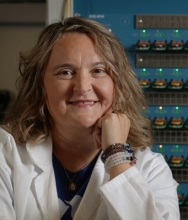MSE 298 Seminar (Zoom): Ways to Mitigate Climate Change - Direct Air Capture of CO2 and Electrification of Mobility

Professor
Department of Electrical and Computer Engineering
UC Riverside
Zoom: Meeting ID 928 7114 0676, Passcode 057979
Abstract: Human influence is likely the main driver of global warming and has increased at a rate that is unprecedented in at least the last 2,000 years. The average person in the U.S. emits about 27 tons of CO2/year. With a world population of about 7.7 billion, an average carbon dioxide emission from humans alone per year is nearly 208 M tons. This does not include emissions from the industry. Human influence has changed global surface temperature more than 1.2 ˚C. While increasing living value, comfort and convenience for humans, which means more consumption of energy, decarbonization of electricity generation can help to curb carbon dioxide emissions. The use of renewable energy generation such as solar and wind may help toward this goal. However, there are sectors hard to decarbonize such as distributed emissions, transportation, air transport, process emissions from the steel and cement industries, agriculture and more. In this talk, I will review: 1) electrification of mobility, and 2) direct air capture (DAC) of carbon dioxide from the atmosphere that can help with distributed and hard-to-avoid emissions. Unconventional solutions for low-cost and sustainable large-volume manufacturing of Li-ion battery fabrication will be introduced to fulfill the future demand, especially due to the worldwide electric vehicle rush. In addition, technical, process and economic barriers for widespread deployment of DAC technology will be discussed, since energy usage and policy support are very critical factors driving DAC’s future growth. As a result of deep decarbonization of industry, transportation and the atmosphere, we may meet the Paris Agreement goals, limiting global warming well below 2˚C, preferably to 1.5˚C, compared to pre-industrial levels.
Bio: Mihri Ozkan is a professor of electrical and computer engineering at UCR and a cooperating faculty in the materials science and engineering program and the Department of Chemistry. Ozkan is a fellow of the National Academy of Inventors and Frontier National Academy of Engineering, and UCR’s first and only female engineering faculty to receive this honor. She is the Climate Action Champion and Change Maker Professor of the University of California. Mihri completed her graduate studies at Stanford University and at UC San Diego. Ozkan’s research group has been developing unconventional solutions for Li-ion battery technologies using sustainable materials and green chemistry requiring low-power processing. Transforming waste glass and plastic bottles, biomass (mushrooms, sugar) and natural sources such as sand and diatoms into high grade battery electrodes are among her group’s achievements. Ozkan has 29 granted and 15 active patents in the area of advanced Li-ion battery technologies for smart grid, electric vehicle and portable electronics applications. She has been selected as one of the most remarkable women of UCR by the UC Regents. Her creative research and innovative approaches for the advanced Li-ion battery technologies have brought her nearly 56 scientific national and international honors/awards. Ozkan has published 180 journal papers and 155 conference proceedings. Her Google scholar citations are 10,977, h-Index is 54 and i10-Index is 140. She advised and graduated nearly 79 graduate students. She has actively organized symposiums and meetings at the national and international levels. Lately, she serves as the lead organizer of the Climate Change Mitigation Technologies Symposium at the Fall MRS 2021 Boston meeting. She is also the guest editor of the April 2022 issue of MRS Bulletin on “Materials for Carbon Capture Technologies,” and a member of the editorial board for NanoEnergy Advances.
Share
Upcoming Events
-
MSE 298 Seminar: Mechano-Electrochemical Phenomena at Ceramic Electrolyte Interfaces
-
CBE 298 Seminar: Beyond the Tailpipe - From the Science of Soot Formation to the Engineering of Carbon Nanomaterials
-
CEE Seminar: Pricing and Control in Emerging Mobility Systems
-
MSE 298 Seminar: Innovation In Materials Science - An Industrial R&D Perspective
-
MSE 298 Seminar: Understanding the Impact of Grain Boundary Inclination on Grain Growth Using Modeling and Simulation and Experiments
